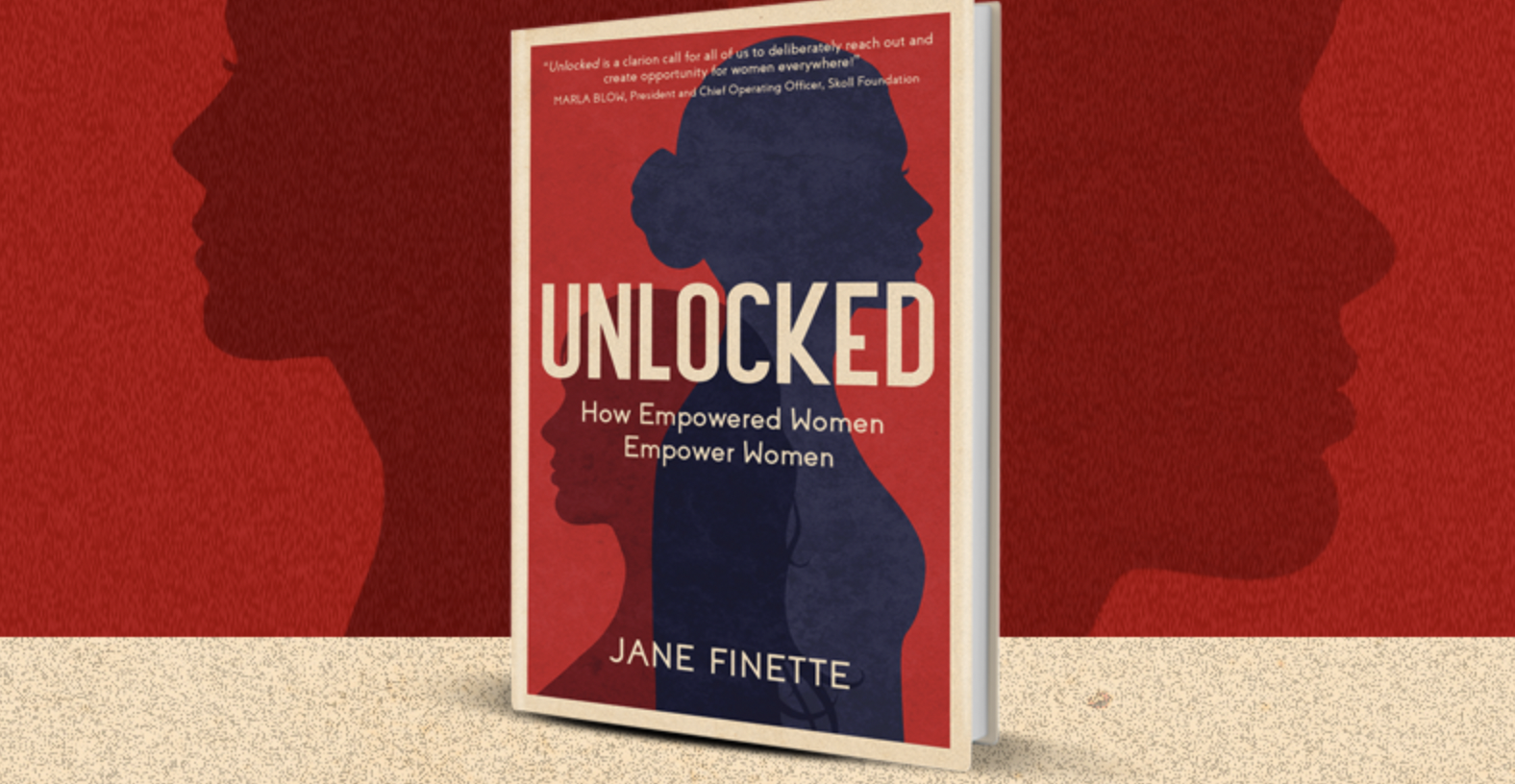I missed out on a peer forum experience when I was a global executive. Partly because I was constantly traveling the world on business trips to visit clients, attend conferences, and have meetings at our global HQ. Partly because I was unaware of peer advisory boards as an emerging category of leadership development. When I […]
Continue readingHumor as a Leadership Tool: Laughing All The Way To The Bank

Berkshire Hathaway CEO Warren Buffett once said, “I buy expensive suits. They just look cheap on me.” His willingness to use a little light humor has made one of the world’s wealthiest men seem eminently approachable to one and all.
Of course, we’ve all heard that laughter is the best medicine, and marrying humor and work is hardly a new concept. From Dilbert to The Office, it can be a winning combination of finding amusing anecdotes amongst the issues and incompetence found in far too many workplaces.
Oddly, humor isn’t often considered as a leadership tool, though it’s arguably one of the best ones out there. Workplace laughter allows you to connect with people at every level, improving communications and showing you’re human and not merely looking at the bottom line. Humor also softens the mood in even the tensest of rooms, increasing your impact and making you more likeable.
1+1 = Success
Humor and humility seem to go hand in hand with the most successful leaders. Combined, these two characteristics become a counterbalance for self-confidence, helping to keep one’s feet on the ground (and the ego in check.)
The operative phrase needs to be “light humor.” Trying to be the next Robin Williams will strip you of your credibility and likely move your image from “Team Leader” to “Class Clown.” You will probably be popular, but few will take you seriously.
However, a moderate amount of humor makes better leaders by getting people relaxed and connected, both as individuals and as a group. It’s been shown to improve morale, productivity, engagement, and creativity. Humor also reduces stress hormones, releasing endorphins that promote an overall sense of well-being.
Admittedly, not every successful CEO or executive has a great sense of humor. But isn’t it interesting how the vast majority of the most successful ones seem to share that trait?
Here’s the bottom line; humor that is believable, relatable, and a little self-deprecating has the ability to help you gain trust with your team members. Incorporating humor into your business style can make you a better leader, getting people more comfortable and connected while improving morale, productivity, and engagement.
The connections and likability factors that come from light humor can be a powerful way to capture even the most skeptical audience, allowing you to own the room and control what takes place there.
Another reason to encourage a few laughs in the workplace: 40% of job turnover is due to stress, and healthcare costs are almost 50% greater for workers who report high levels of stress. Add in the fact that actively disengaged employees erode any business’ bottom line, and you’ve got a pretty compelling reason to try and cheer up your workplace environment.
Is It Okay To Be Mean?
When Gil Amelio was running Apple (1996-97), he spoke with technology journalist Gina Smith, who asked how Apple was doing. “You know, Gina, Apple is like a ship,” Amelio answered. “That ship is loaded with treasure, but there’s a hole in the ship. And my job is to get everyone to row in the same direction.” Smith looked perplexed and asked, “Yeah, but what about the hole?
Steve Jobs, after replacing Amelio in a boardroom coup, made this a favorite story and encouraged his audiences to have a good laugh at Amelio’s expense.
Yet recognizing that most executives aren’t stand-up comedians, the question arises; what type of humor should you use to help you achieve your objectives? Heavy-handed attempts at humor typically do more harm than good by misfiring and resulting in offended staff and superiors questioning your judgment. Not everyone will necessarily share (or understand) your sense of humor, making mean-spirited humor a potentially treacherous road to travel down.
As actor Edmund Gwenn observed as he lay on his deathbed; “Dying is easy. Comedy is difficult.”
Thus, the challenges when using humor for business purposes are:
- Properly gauging the corporate culture and top management’s attitude towards humor
- Using authentic humor that reflects your personality
- Using disarming and humorous material, rather than anything seen as armed and dangerous
So when in doubt, keep your mouth shut.
Why Are You Bothering?
Humor overlaps with the basic qualities of leadership, helping to instill a sense of humility, communication, balance, accessibility, authenticity, influence, trust, social intelligence, and conflict management.
Not surprisingly, serious institutions like Wharton, MIT, and The London Business School have determined that every chuckle or guffaw provides a host of business benefits by relieving stress and boredom, boosting engagement and well-being, and spurring creativity, collaboration, analytic precision, and productivity.
And while this viewpoint is not held universally, similar thoughts on the subject have been espoused by some of the smartest minds in the business world, including:
- “Fun is frivolous, we know…unless you want to attract and keep good employees and customers.” (Inc. Magazine)
- “Fun is one of the most important – and underrated – ingredients in any successful venture.” (Richard Branson)
- “You’ve achieved success in your field when you don’t know whether what you’re doing is work or play.” (Warren Beatty)
- “If you like your job, if you have inner peace along with physical health, you will have had more success than you could possibly have imagined.” (Johnny Carson)
Put more succinctly, as advertising doyen David Ogilvy observed; “Where people aren’t having fun, they seldom produce good work.”
Because the fact is there are days for each of us when we feel if we don’t laugh we’re going to cry. What we don’t realize, though, is the importance of that laughter to the bottom line.
Humor May Make You a Better Leader
Obviously, humor is more than just telling a joke, and can oftentimes be JUST the tool you need as a leader. Used properly, it can change perspectives while allowing listeners to lower their stress level (and the hormones associated with stress) over otherwise fraught topics. What most people don’t realize is that laughter releases endorphins that promote an overall sense of well-being.
However, whether you’re in a comedy club or a boardroom, humor only works if you know your audience. Verbal tickling, puns, pranks, a mix-up that seems funny after the fact…even a bawdy joke…can be effective if there’s shared knowledge and a feeling that “You’re one of us.”
Humor, of course, is subjective. You are bored by things that Pete in accounting finds hysterical, and vice-versa. And in some industries that are meant to be serious (security, for example), cracking jokes risks you being viewed as unprofessional.
Now consider this: babies typically laugh 400 times a day, while those over 35 only laugh 15 times daily. Gallup reports we laugh significantly less during the week than on weekends.
Which suggests we need to lighten things up in our work environments. But…short of showing Marx Brothers movies in break rooms or starting each meeting with a joke, how do you generate more laughter at work? What kinds of humor will fit best into professional settings? Self-deprecating stories shared between peers, light teasing among longtime colleagues, and privately poking fun at generic groups of outsiders (arrogant consultants, clueless interns) all typically fit the bill. Overall approaches to consider should include:
- Laughing at yourself. You set the tone for levity, and can start by looking in the mirror. If a deal you authorized just went south, you might begin a review of the failed deal with a self-inflicted jab like, “The guy who signed off on this deal might just be looking for work next week.” This gives everyone permission to look objectively at the facts, as well as license to offer criticism.
- Joke of the week. Include an appropriate cartoon on the agenda page for your weekly meetings. It’ll get people off on the right foot. “Comedy,” said Robin Williams, “is acting out optimism.”
- Look on the light side. Levity can help turn failure into a good teacher. If your sales team misses its quota, start with something like, “We fell short this quarter. If we’re any shorter next time, I won’t be able to climb into my car.” With that, you haven’t dismissed the issue, but have enabled others to move forward without dwelling too much on the past.
Why Humor May Fall Flat
Using humor as part of your workplace persona may require a delicate touch depending on your geography. Because even as humor is unique to each individual, there may be a different “flavor” of humor prevalent in the country you’re working in.
You may not realize, for example, that Latin American humor tends to be “black” humor. Japanese culture typically steers clear of joking in the office, while Americans may lean towards unabashed use of one-liners. British work environments may demand subtle humor, Indian situations may be more surreal, and doing business on the African continent may demand observational humor.
Bottom line: Follow the first rule of marketing, and always know your audience.
Leave ‘Em Laughing: Benefits of Humor in Leadership
Let’s end on a high note (I’m partial to C Sharp) with these seven reasons why humor is one of the most underrated leadership traits:
- Humor is disarming. It lightens the mood, puts people at ease, and minimizes feelings of intimidation that others may feel when talking with you.
- It lowers stress levels. When there’s tension in the room, humor helps everyone relax, think more clearly, and make better decisions.
- It mitigates bad news. Even if there’s a disaster, you need someone to smile and say, “Life goes on, and we’ll win next time.”
- It builds teams. Having fun together creates a sense of community.
- People will root for you. Showing your sense of humor will make you more likeable and encourage people to want you to succeed.
- It emphasizes key points. Stories and dramatic anecdotes are easily remembered and resonate with people.
- Humor is motivating. Especially when times are hard.
And Finally…
A mushroom walks into a bar, and the bartender says, “Hey, get out of here; we don’t serve your kind.”
The mushroom responds; “Why not? I’m a funghi.”




















